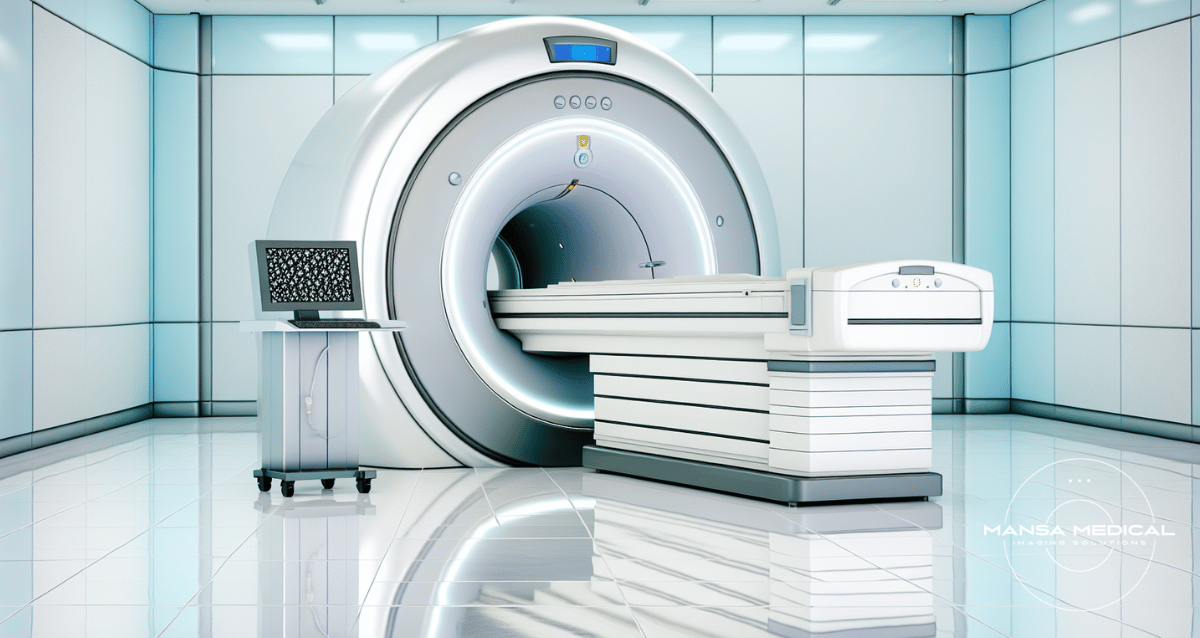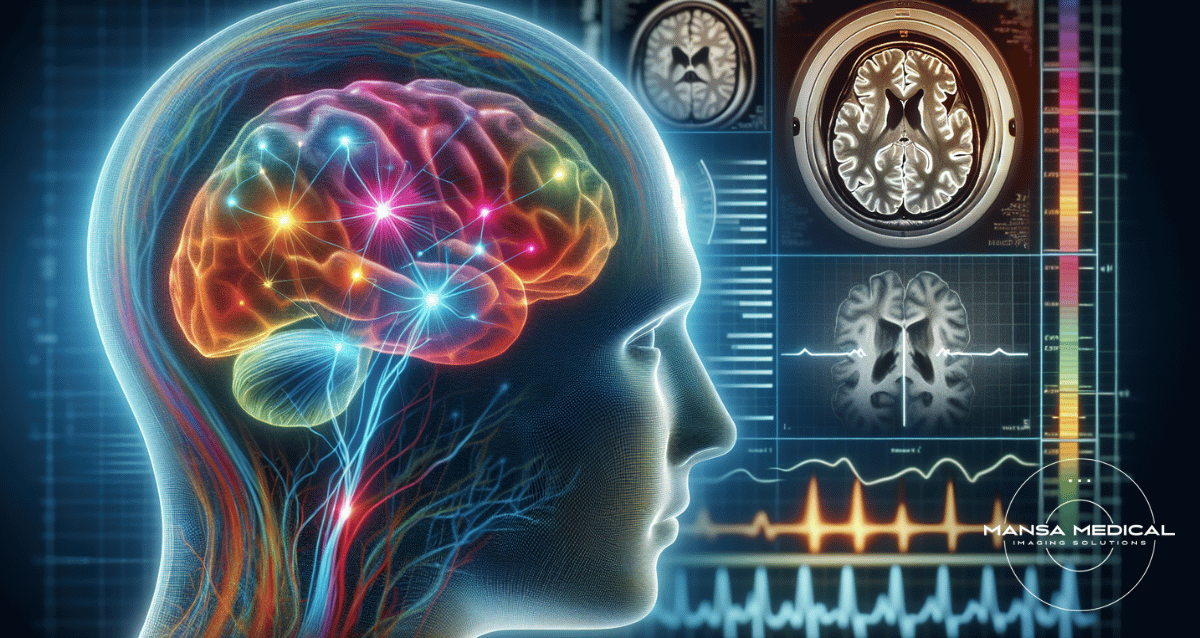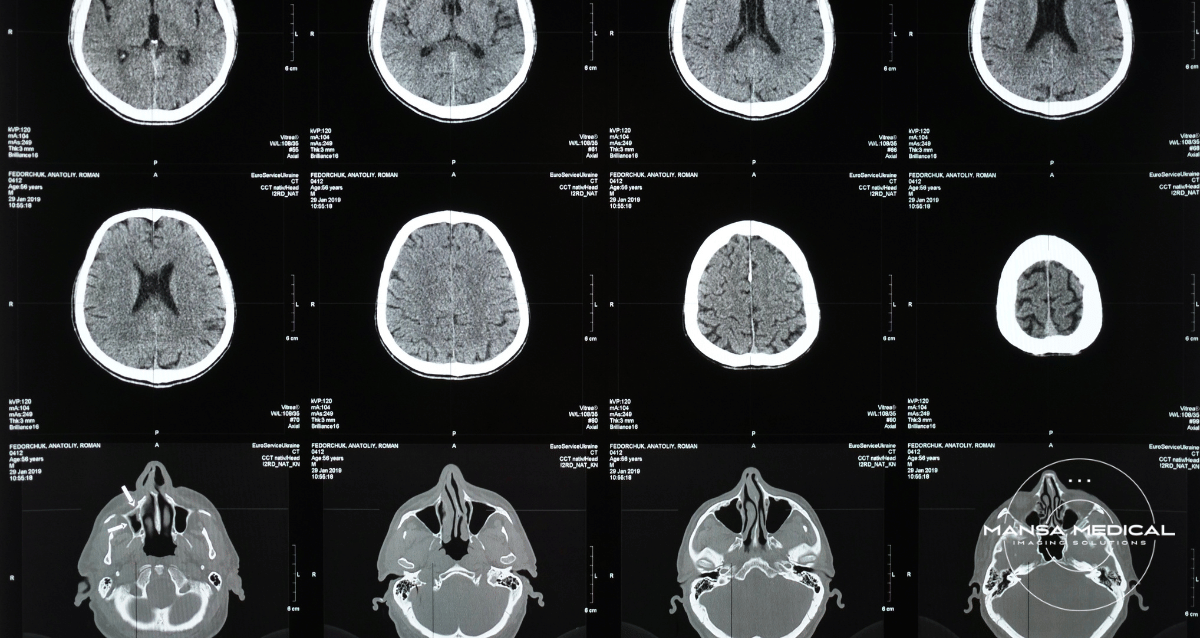Enhancing Patient Care with The Newest MRI Technology
“Medicine is magical and magical is art, the right hand the left hand, to heal is to steal, and to steal is to understand.” – Anonymous
Discover the forefront of medical imaging with the newest MRI technology. Pioneering breakthroughs are enhancing diagnostics and patient experiences with rapid advancements in scan efficiency, image clarity, and the integration of sophisticated AI analysis. Join us to delve into the transformative developments in MRI, from ultra-high field scanners that offer stunning detail to mobile units bringing vital diagnostics to diverse environments. Explore how these technologies are reshaping patient care and what the future holds for MRI innovation.
Key Takeaways
-
Advancements in MRI technology include faster scanning times with Compressed SENSE and Silent Scan and improved imaging quality. However, used machines still cover the needs of 95% of imaging use-cases.
-
Innovations in MRI scanners feature mobile machines for broader accessibility and bedside scanning approved by the FDA, ultra-high field MRI scanners for enhanced brain imaging, and Silent MRI scanners for quieter operation and better patient experience.
-
MRI technology is driving new applications in healthcare: brain connectivity mapping for neurological studies, advanced cardiac imaging for heart condition diagnosis without radiation, molecular imaging for cellular-level insights, and contributions to medical research on neurodegenerative diseases, cancer, and musculoskeletal disorders.
The Future of MRI: Cutting-Edge Innovations
Thanks to ongoing technological advancements, MRI machines are experiencing an unprecedented level of enhancement in power, efficiency, and availability. There is active development underway for ultra-high field scanners that aim to expand the frontiers of imaging potential. These innovations are transforming the realm of MRI with faster scan durations, superior image resolution, and artificial intelligence-driven analysis processes, all signaling a promising future for magnetic resonance imaging technology.
Faster Scanning Times
The introduction of Compressed SENSE technology has significantly enhanced the speed and efficiency of MRI scans. This innovation can slash the time taken for some exams by as much as 50%, which greatly improves both patient throughput and comfort during scanning processes [1].
In tandem, Silent Scan technology is revolutionizing MRIs by diminishing noise levels, which may also contribute to reduced scan times. These advancements are accelerating the overall process of functional magnetic resonance imaging (MRI) [2].
Improved Image Quality
The quality of MRI (Magnetic Resonance Imaging) images has seen significant advancements. Spatial resolution is heightened through the use of Compressed SENSE technology, and high-V MRI systems have been instrumental in diminishing geometric distortions when it comes to diffusion imaging.
Silent MRI technology plays a pivotal role in lessening patient discomfort while also enhancing the differentiation between gray and white matter on T1-weighted images, thereby Elevating the overall image quality.
AI-Powered Analysis
In the field of AI, Explainable Artificial Intelligence (XAI) marks an important advancement by offering clear explanations for AI’s decision-making process. It enhances the transparency and reliability of AI algorithms for medical professionals. Such progress is essential in securing broad clinical endorsement of using AI for MRI interpretation.
New Types of MRI Scanners

The field of MRI scanning is not just evolving through technological advancements but also expanding in scope. Innovative variations of MRI scanners are being developed to cater to particular requirements and address specific obstacles. At Mansa Medical, we know that for an MRI technician, it is crucial to stay abreast of these progressive developments.
There are specialized extremity systems intended for detailed imaging of limbs and compact, mobile units that extend the capability of creating detailed images with MRI technology into a wider array of environments.
Mobile MRI Machines
Mobile MRI machines like those you can find at Mansa Medical are transforming the medical imaging arena by leveraging a magnetic field. These machines offer a more compact, cost-effective, and adaptable alternative to conventional MRI equipment, making them perfectly suited for mobile applications or situations where traditional MRIs might be prohibitively expensive or when an urgent MRI exam is required.
Ultra-High Field MRI Scanners
MRI scanners operating at ultra-high fields, like the 7T variant, are pushing boundaries in brain imaging capabilities by providing enhanced contrast methods, elevated signal-to-noise ratios, superior resolution for both anatomical and vascular visuals, as well as heightened efficacy in identifying and detailing metabolites during spectroscopic imaging [3].
Silent MRI Scanners
In the field of MRI, a major emphasis is placed on diminishing acoustic noise, with Silent MRI scanners at the forefront of this initiative. By employing specific sequences designed to greatly lower sound levels, these scanners enhance patient comfort during procedures—especially for individuals who experience stress from conventional MRI scans.
Breakthrough Applications of MRI Technology

Innovations in MRI technology strive not just for enhancements to the devices themselves but also seek to explore their potential through new and innovative uses. Significant developments are occurring in the use of MRI for mapping connections within the brain, as well as for advanced imaging of heart conditions and molecular imaging, among various applications.
Brain Connectivity Mapping
Magnetic resonance imaging is a critical tool for the exploration of brain connectivity. It significantly enhances our grasp of how brain networks are organized and function. Functional MRI, in particular, is pivotal when it comes to researching neurological conditions and improving treatments.
To evaluate effective connectivity both in the brain and within the spinal cord’s complex system, methodologies like vector autoregressive modeling and structural equation modeling are employed. These techniques shed light on the dynamic interplay within these essential components of the central nervous system.
Advanced Cardiac Imaging
An alternative to imaging methods that involve radiation, Cardiac MRI provides vital information about the health and functionality of heart tissue—including myocardial viability and fibrosis—facilitating the diagnosis and treatment of cardiac diseases without subjecting patients to ionizing radiation.
In cases of breast cancer, this technique is especially useful in forecasting how a tumor will respond to neoadjuvant chemotherapy before surgery.
Molecular Imaging
Advancements in molecular magnetic resonance imaging (mMRI), including the use of 7T imaging and the creation of advanced MRI contrast agents, significantly improve its ability to non-invasively visualize biological processes at a molecular and cellular level. This is vital for identifying particular molecular targets as well as tracking therapeutic responses with magnetic resonance imaging (MRI).
MRI Safety and Accessibility Improvements
As MRI technology advances, the need for improved safety and accessibility grows. The rising number of MRI procedures and advancements in medical implant technology require ongoing education and training to maintain safe patient care. This encompasses creating implants compatible with MRIs, developing alternatives to gadolinium-based contrast agents, and finding ways to address claustrophobia and anxiety during scans.
MRI-Compatible Implants
Advancements in the creation of devices compatible with MRI have ensured that individuals equipped with implants, such as cochlear implants and pacemakers, can safely undergo MRI scans. These devices are distinctly classified based on their level of safety within an MRI setting to guarantee the protection of patients.
Gadolinium-Free Contrast Agents
Researchers addressing health worries linked to gadolinium accumulation are in the process of creating alternative contrast agents that do not contain gadolinium. Iron oxide nanoparticles have emerged as a viable substitute, offering enhanced contrast for low-field MRI scans and avoiding the associated hazards with gadolinium use.
Solutions for Claustrophobia and Anxiety
Patients who suffer from claustrophobia and anxiety often find the prospect of undergoing a scan in a traditional closed MRI scanner intimidating. With the advent of open MRI machines coupled with soothing enhancements such as ambient lighting, music, and depictions of natural scenery, there has been a substantial decrease in patient anxiety and discomfort during MRI procedures.
The Role of MRI in Medical Research

Particularly in the realms of neurodegenerative disease research, cancer detection, and monitoring, as well as musculoskeletal disorders, MRI technology and the use of an MRI scan are not only instrumental for diagnosis and treatment but also serve as a powerful tool in medical research.
Neurodegenerative Disease Research
Research on neurodegenerative diseases heavily relies on functional MRI as a key tool. It generates pictures that show the flow of blood to specific regions of the brain, enabling examination of both the structure and essential operations within it.
To identify impairment resulting from disorders like Alzheimer’s disease, this method is employed to visualize both cerebral blood flow and neural activity through imaging techniques.
Cancer Detection and Monitoring
Diffusion-weighted MRI (DW-MRI) is a crucial tool in the planning and observation of cancer treatment, as it allows for the early detection of rises in ADC values. These increases are signs of successful therapy across different kinds of tumors, offering valuable information.
Musculoskeletal Disorders
MRI technology proves to be an indispensable asset for the diagnosis and evaluation of musculoskeletal disorders by delivering detailed images of muscles, ligaments, and various soft tissues. This imaging modality is particularly useful in detecting early signs of conditions such as rheumatoid arthritis and examining affected joints.
The Advantages of Utilizing Used Medical Imaging Equipment in Healthcare Facilities
Even as technology continues to advance in the medical imaging field, opting for used equipment brings numerous benefits and proves advantageous for medical facilities. The primary advantage lies in the substantial cost savings compared to purchasing new equipment, facilitating more efficient budget allocation. Additionally, the acquisition process for used machines is often faster, allowing for quicker implementation and ultimately leading to improved patient care.
Used medical imaging equipment often boasts a proven track record of reliability, as sellers typically refurbish and rigorously test it to meet industry standards. The extended lifecycle of these machines makes them a cost-effective option, providing access to advanced technology without incurring the full expense associated with new equipment.
Furthermore, some used machines may include extra features, upgrades, or accessories, enhancing their capabilities. By avoiding the steeper initial depreciation linked to new equipment, used machines may experience slower depreciation over their remaining useful life.
For smaller healthcare facilities with limited budgets, choosing used equipment can be a more feasible option than investing in new machines. This approach enables them to access advanced imaging technology without compromising on patient care. Moreover, for facilities with specific and occasional imaging needs, used equipment proves to be a cost-effective solution compared to the expenses associated with acquiring new machines.
Despite these advantages, a careful assessment of the equipment’s condition, maintenance history, and specifications is essential before making a purchase. Working with reputable sellers and ensuring compliance with regulatory standards are crucial aspects of a successful acquisition in the medical imaging field.
Mansa Medical: Elevating Healthcare with Advanced MRI and CT Scan Solutions and Unparalleled Service Excellence
Mansa Medical specializes in delivering comprehensive services for MRI and CT scan systems, including full-service turn-key solutions and upgrades across multiple facilities. We are committed to providing prompt, seamless installation processes as well as exemplary service and project management.
Take a look at our products and contact us for more information on how you can benefit from our solutions!
Full Summary
The advancement of MRI technology is transforming medical imaging significantly. Enhancements in the machinery, software capabilities, and diverse applications are offering an unparalleled understanding of human anatomy as well as pathological conditions. Whether it’s through the use of ultra-high field scanners or mobile MRI units or by creating detailed maps of brain connectivity to evaluate musculoskeletal disorders, MRI continues to extend the limits of medical imaging possibilities.
Frequently Asked Questions
What is the new MRI technology in 2024?
In 2024, the High-V MRI (0.55T) is the newest technology in MRI. Traditionally, high-quality MRI exams required a field strength of 1.5T or above. However, High-V MRI (with a field strength of 0.55T) challenges this notion.
What are the latest advancements in MRI?
Enhancements in MRI technology have led to rapid imaging methods, superior resolution of images, and elevated levels of comfort for patients undergoing MRI scans. Such improvements have markedly bolstered the diagnostic proficiency of MRIs.
Are MRI machines used in hospitals?
Yes, MRI machines are used in hospitals to perform scans on patients.
What are the benefits of Mobile MRI machines?
MRI machines that are mobile provide the advantages of being more compact, cost-effective, and versatile, rendering them ideal for settings on the go or where budget restrictions apply. This renders these machines an outstanding choice in situations where standard MRI units might be impractical.
How is MRI technology being used in medical research?
Utilizing MRI technology has become critical in the advancement of medical knowledge and treatments, particularly within the realms of neurodegenerative disease research, cancer detection and monitoring, as well as examining musculoskeletal disorders.
